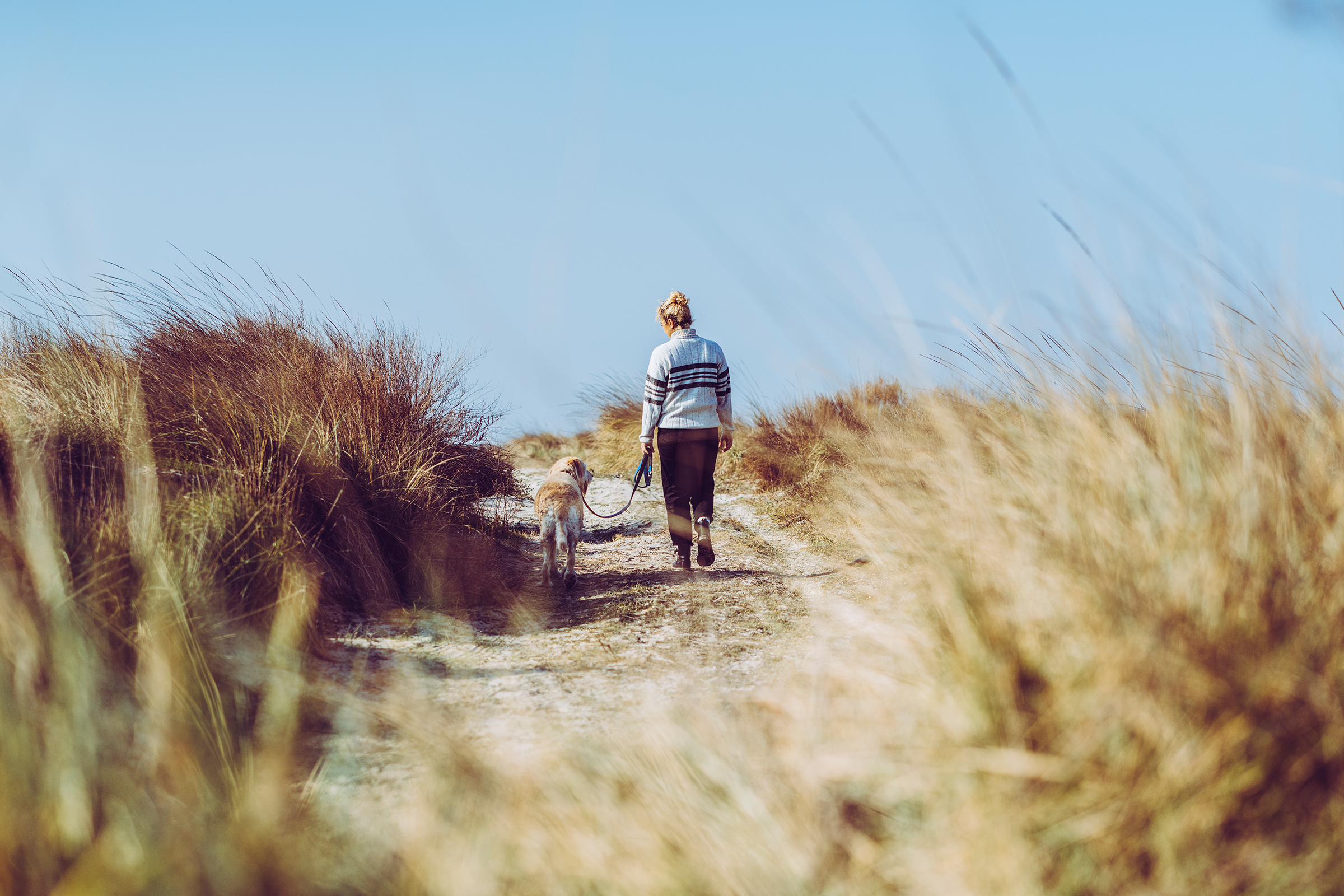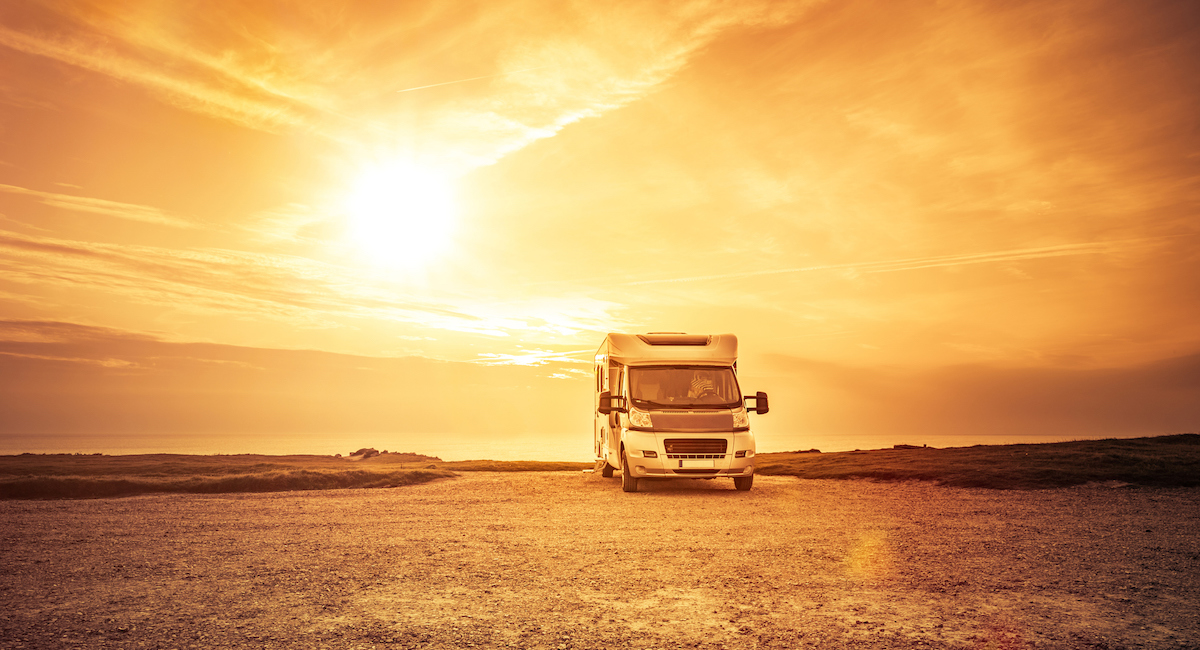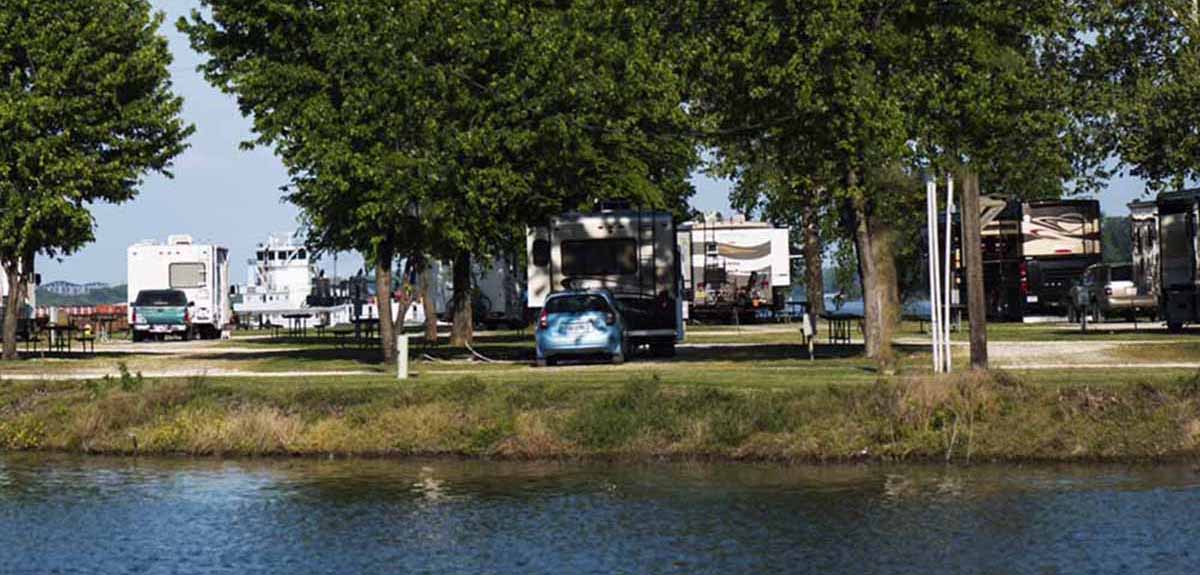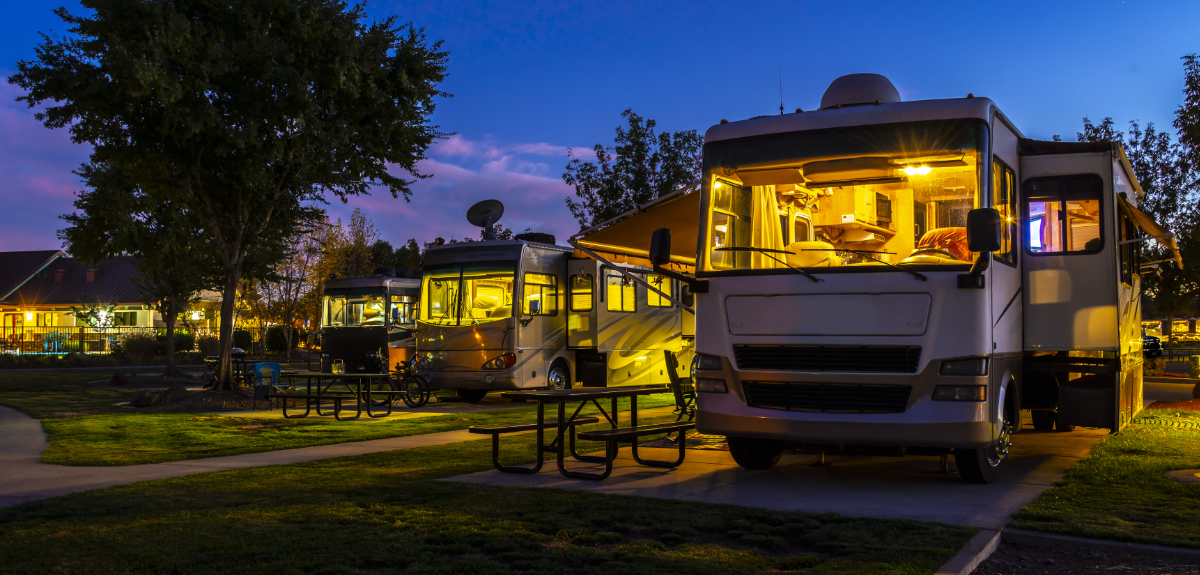Everything You Need to Know Before Renting an RV for the First Time
Travel Smarter and Safer with These Handy Tips
Image Caption: Image Courtesy of photoschmidt/Getty
Considering the expense and challenges that come with RV ownership, it is easy to understand why rentals have become one of the fastest-growing segments of the industry. Renting allows travelers to dip their toe into the RV waters and get a sense of life on the road with a motorhome, van, or travel trailer. It also allows veteran RVers to skip a long drive by leaving their personal rigs at home and flying across the country to explore a new destination instead.
First-time renters tend to have many questions about the process, which can seem overly complicated and daunting. In reality, it is usually a simple and straightforward affair, especially if you do your homework ahead of time.
With that in mind, here is everything you need to know before renting an RV for the first time.

Image Courtesy of DisobeyArt/Getty
Book Your Reservation Early
With RV rentals becoming so popular in recent years, it’s a good idea to make your reservations as early as possible. After deciding on a destination and the dates you plan to travel, the next step is finding a rental company with vehicles available. Be sure to read over all the fine print, go through any rental FAQs the company may offer and don’t hesitate to contact customer service with any questions.
Once you feel comfortable with your plans, you’ll want to start the process of reserving your RV as soon as possible. You’ll likely be required to put down a deposit and fill out a stack of forms. Most of that is done online, so the process is usually very easy to complete.
What Size RV Should You Rent?
Before reserving your rental RV, you’ll have to decide which type and size vehicle you’ll want for your journey. Factors that could influence that decision include the number of people traveling with you, where you’ll be driving, and how much you want to rough it while you’re camping.
Class A and Class C motorhomes are excellent options for large families or groups of friends, while a camper van is a good choice for couples or families with small children. More maneuverable than their larger counterparts, camper vans are also better suited for remote campsites and boondocking. But larger RVs offer more space, features, and amenities, adding extra comfort to the experience. Your rental company should provide the specs for all of their campers, including the number of people that any given model can sleep comfortably.
The rental price will also be directly impacted by the size and style of RV that you choose. A general rule of thumb is that larger motorhomes will cost more to rent, although the onboard features can also influence the price. In some cases, a super-swanky Class C may cost as much or more than a larger Class A if it comes with upscale amenities.
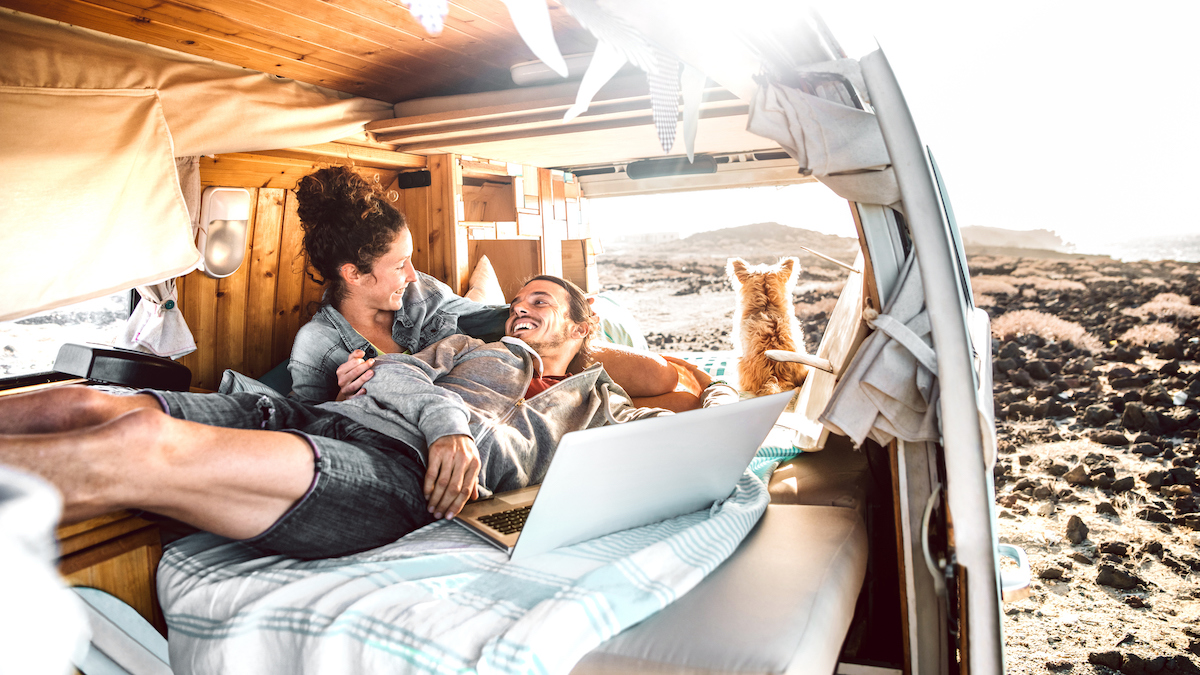
Image Courtesy of ViewApart/Getty
Deposits and Insurance
As noted above, most rental companies will require renters to put down a deposit to hold their reservation. That deposit is due when the reservation is made and is usually applied to the final balance when picking up the vehicle. Typically, a security deposit is also required but provided you return the RV in good condition, you’ll receive a refund for those funds.
Insurance is required when renting an RV, and most rental companies will either provide it for an additional cost or add it to the rental fees. If you have the option to decline the insurance, you’ll need to show proof of coverage from another provider. Unlike when you are driving a rental car, your insurance company won’t typically extend coverage to a motorhome. Instead, you’ll need to contact your insurer and request a special policy for your intended travel dates.
What’s Included with the RV Rental?
When communicating with the RV rental company, you’ll want to find out what supplies and furnishings are already onboard the RV. For instance, does it come with all the necessary linens, including sheets and towels? How about pillows? Is the kitchen stocked with dishes, pots, pans, and cups? Are their cleaning supplies or other basic household items? Is the propane tank full?
Some companies will provide those essential items as part of the rental package, while others may charge extra for them. Some will require renters to bring their own linens and kitchen utensils. To avoid getting caught off guard, find out what exactly is included before you arrive so you can plan accordingly.
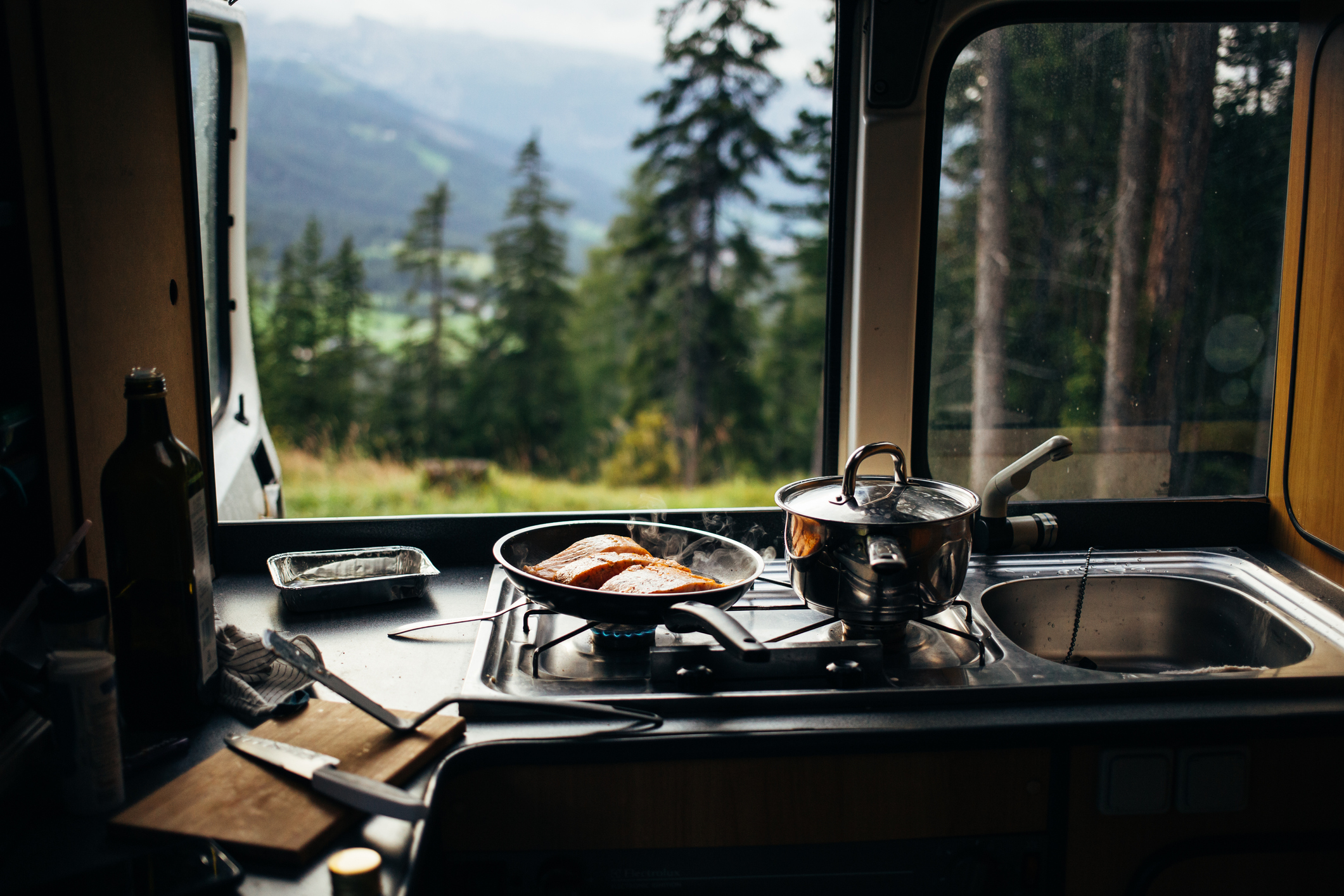
Image Courtesy of DeRepente/Getty
Inspect the Vehicle Before Setting Out
As when renting a car, be sure to do a complete inspection of the RV before driving away. Document any obvious cosmetic or mechanical issues with the vehicle so you’re not held responsible for them upon return. That includes checking the motorhome’s interior to ensure furnishing, appliances, and electronics are all in good working order. By noting any issues ahead of time, you’ll have a better chance of recouping your full security deposit.
Your First Stop Will be the Grocery Store
After picking up your RV, your first stop will probably be the grocery store. Since your motorhome will likely come with a kitchen, you can save some money on your trip by making most or all of your meals. Before doing that, you’ll need to stock the pantry and refrigerator with supplies.
A bit of pre-trip meal planning can help make that visit to the grocery store quicker and more efficient. Consider what you’d like to eat for breakfast, lunch, and dinner, and shop accordingly. If your RV doesn’t have a microwave, avoid purchasing any foods that require one. And don’t forget to pick up some snacks.
Before going to the store, do a quick sweep through the RV to see what other supplies you might need. Create a list of everything you’ll need, and don’t forget to stock up on essential items—like cleaning supplies, soap, and toilet paper. Your campsite might be miles away from the closest outlet, so it may not be convenient to drop by another store once you hit the road.
Secure Everything
When loading all your gear and supplies into the RV, take a little extra time to ensure that everything is secure. Things can jostle about while driving, and anything that isn’t locked down could topple over. Even items placed in cabinets or closets will shift while in transit, and fragile items could break. But with a little extra care, your cargo will arrive safely at the campsite.
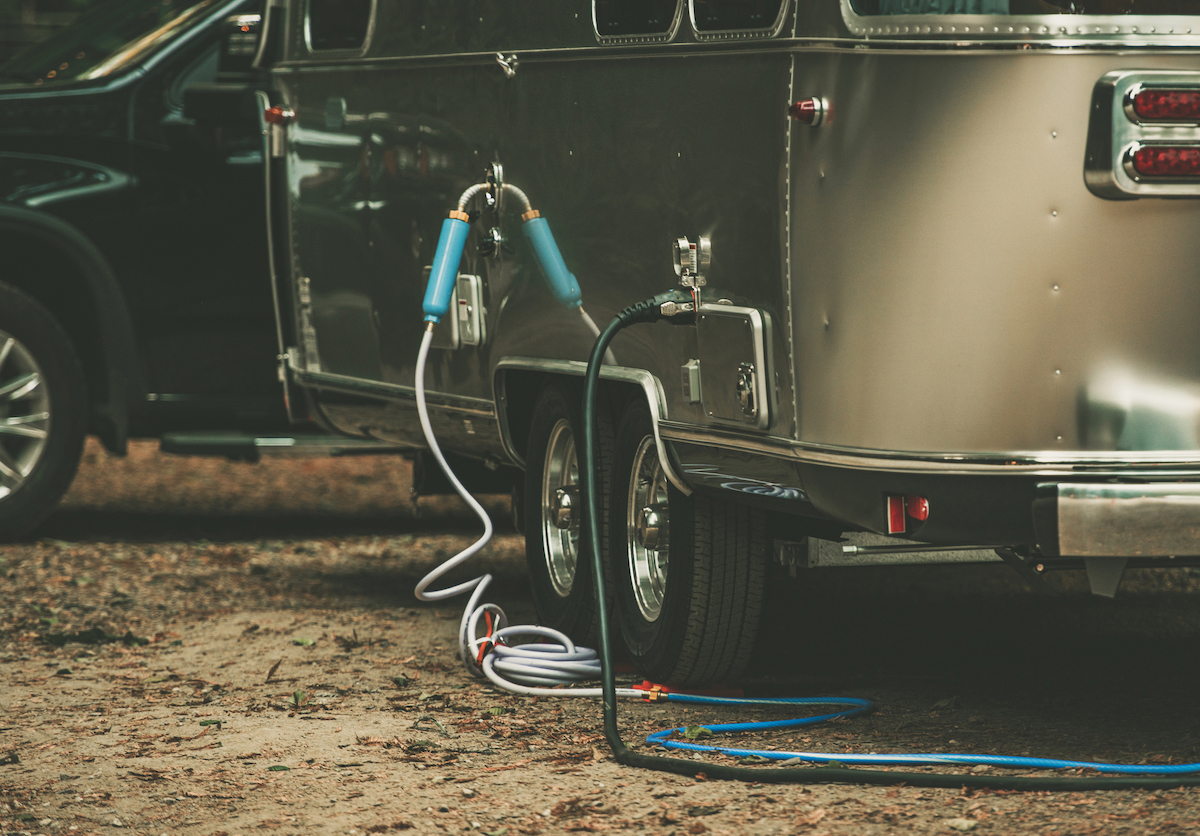
Image Courtesy of welcomia/Getty
Acquaint Yourself with Your RV Hookups
If you’re staying in a campground that advertises “full hookups,” you’ll be able to connect your RV to water, electrical, and sewer lines while there. That means you’ll have running water and power throughout the vehicle, and the toilet will deposit waste directly into the local sewer system rather than the RV’s holding tanks.
These hookups are not complicated to understand and connect, but they can be confusing for first-time RVers. When picking up your RV, ask for a quick tutorial on how those systems work. Getting acquainted with them before arriving at the campsite can save time, effort, and frustration.
Learn How to Dump the Grey and Blackwater Tanks
One of the most daunting tasks for anyone new to RVing is emptying the holding tanks on their vehicle. This is especially true of the blackwater tank, which can be messy if not done correctly. Once again, prior to setting out, ask for a tutorial on how to dump the waste from the RV. Chances are, you’ll still be a little intimidated the first time you pull into the dump station, but at least you’ll have some sense of how things operate.
Be sure to wear gloves while dumping, and a face mask can be helpful too. Don’t worry about being fast the first time or two; just concentrate on getting the proper procedures down. Don’t be afraid to ask someone for assistance, as the RV community tends to be very supportive and helpful, particularly to newcomers.

Elderly caucasian beautiful couple petting their dog together near their motorhome
Bring Your Pets!
One of the joys of RV travel is bringing your pets along for the ride. Most RV rental services are pet friendly, although they may have restrictions on the size and number of pets you can bring. Be sure to ask if it’s okay for your dog or cat to join you on your adventure before you set out. Most likely, it won’t be a problem, although a pet security deposit may be required.
Be Patient While Driving
Driving an RV isn’t like driving a car. Large motorhomes can be slow to accelerate and take a long time to come to a stop. They aren’t the most maneuverable of vehicles either and can feel very ponderous out on the road. This is especially noticeable on windy backroads or narrow mountain highways, where precision driving is often required.
When driving your RV for the first time, allow yourself some time to get comfortable behind the wheel. Don’t go too fast, and be patient while you get acquainted with how it drives. After a while, you’ll start to get a feel for how it handles, making it easier to get in and out of parking spaces and campsites and maneuver through traffic.
It is important to remember that RVs are taller and wider than most other vehicles, requiring more awareness of your surroundings while driving. Narrow tunnels and low overpasses can be a hazard for a motorhome, and a more prominent profile makes it more susceptible to crosswinds too. Stay vigilant and give yourself a little extra time to reach your destination safely.
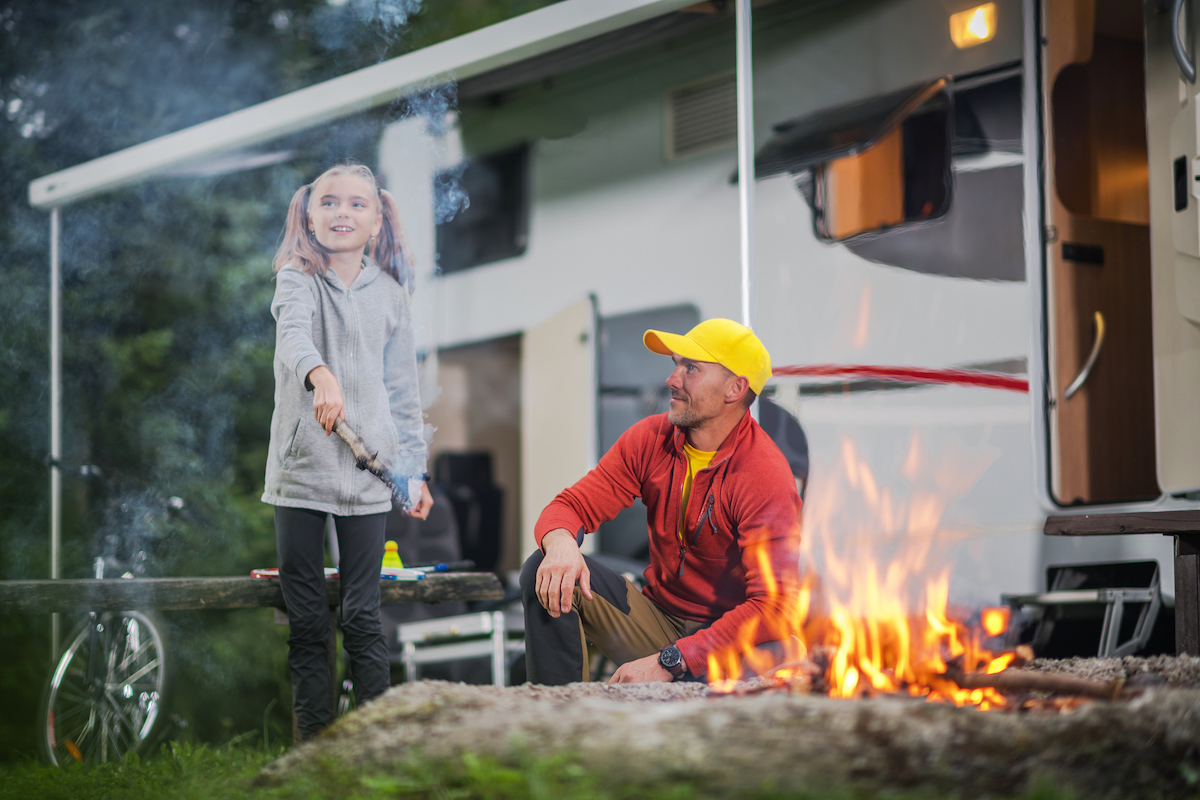
Image Courtesy of welcomia/Getty
Get to Your Campground Early
Any experienced RVer will tell you that arriving at the campground late in the day—and especially after dark—can be stressful. It takes time to set up camp, and it is easier to park and connect your hookups during daylight hours. Try to arrive plenty early so you can make that process as stress-free as possible, both for you and your neighbors. It will also give you more time to relax and unwind after a day on the road.
Take Your Time and Enjoy the Journey
Traveling by RV is unlike any other type of transportation. While driving a large vehicle comes with challenges and restrictions, it is also oddly liberating and incredibly fun. Once you are comfortable and confident in your home on wheels, you’ll discover that RVing is more about the journey and not so much the destination. Take your time and enjoy the ride. It is an experience worth savoring.
Now that you know what to expect, book your rental, plan your escape, and just go. You won’t regret it.

Kraig Becker is a writer in the RV, outdoors, and adventure travel space. Over the course of his career he has contributed to such outlets as Popular Mechanics, Outside Online, Business Insider, TripSavvy, Digital Trends, GearJunkie, The Adventure Blog, and countless others. And avid runner and cyclist, he enjoys camping, hiking, mountain biking, kayaking, and just about any other outdoor activity. His travels have taken him to seven continents and on many amazing adventures.

